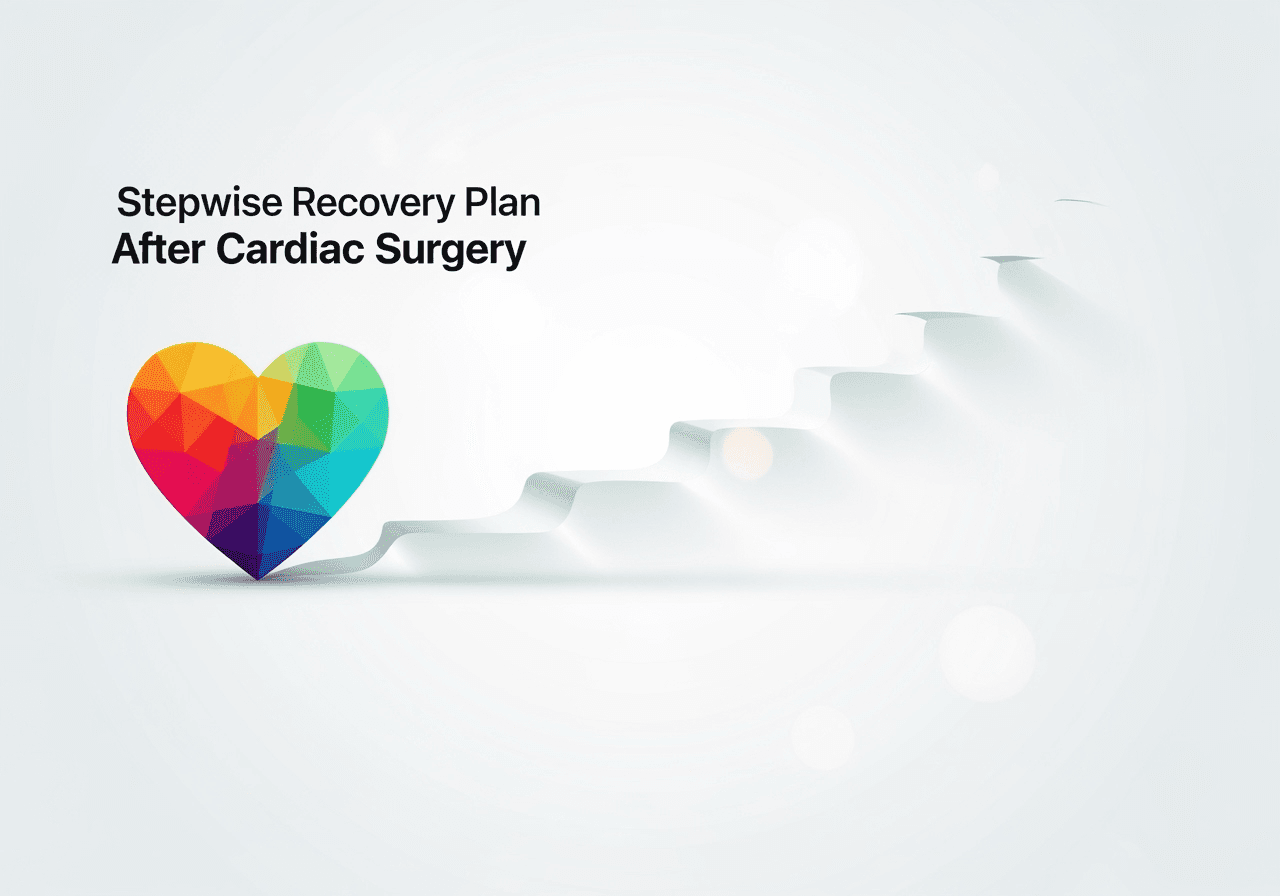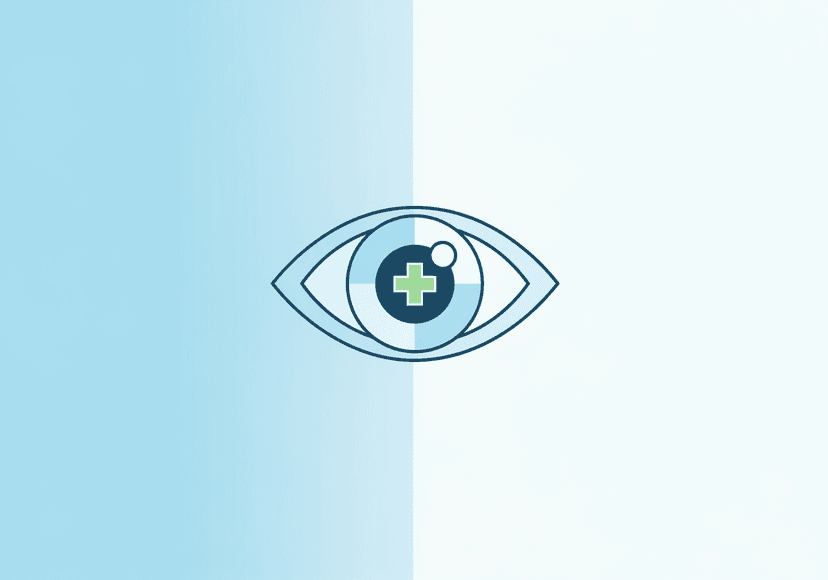
Stepwise Recovery Plan After Cardiac Surgery
29 Oct, 2025
 Healthtrip
Healthtrip- Where to Recover: Hospitals and Rehabilitation Centers < li>Why Stepwise Recovery Is Crucial After Cardiac Surgery
- Who Will Be Involved in Your Recovery Journey?
- How to Follow a Stepwise Recovery Plan
- Realistic Recovery Timeline and Examples
- Potential Complications and Solutions During Recovery
- Conclusion
Immediate Post-Operative Care: The First Few Days
The initial days following cardiac surgery are typically spent in the hospital's intensive care unit (ICU) or a specialized cardiac care unit. Here, the focus is on closely monitoring your vital signs, managing pain, and preventing complications. You'll be connected to various machines that track your heart rate, blood pressure, oxygen levels, and other important indicators. Don't be alarmed by all the equipment; it's there to ensure you receive the best possible care. Pain management is a top priority during this phase. The medical team will administer medications to keep you comfortable. Open communication with your nurses and doctors is essential; let them know if you are in pain or experiencing any discomfort. Early mobilization, such as sitting up in bed or taking a few steps with assistance, is encouraged to improve circulation and prevent blood clots. Respiratory exercises, like deep breathing and coughing, are also crucial to clear your lungs and prevent pneumonia. Remember, this phase is all about laying the foundation for a successful recovery. Healthtrip partners with leading hospitals like Memorial Sisli Hospital, where experienced medical teams prioritize post-operative care and patient comfort, ensuring you receive the best possible start to your recovery journey.
Most popular procedures in India
Phase 1: Hospital Recovery - Regaining Strength and Independence
Once you’re stable and showing signs of improvement, you'll be transferred from the ICU to a regular hospital room. This phase focuses on gradually increasing your activity levels and regaining independence. Physical therapy plays a vital role in helping you rebuild strength and endurance. A physical therapist will guide you through exercises tailored to your specific needs and limitations. These exercises may include walking short distances, climbing stairs, and performing simple stretches. It's essential to follow their instructions carefully and gradually increase the intensity of your workouts. Wound care is another crucial aspect of this phase. The surgical incision needs to be kept clean and dry to prevent infection. You'll receive instructions on how to care for your incision at home, including how to change dressings and recognize signs of infection. Nutritional guidance is also provided to ensure you're eating a balanced diet that supports healing and recovery. A dietitian can help you create a meal plan that meets your specific nutritional needs. If you have any concerns about your recovery, don't hesitate to reach out to the medical team at hospitals like Saudi German Hospital Cairo. Healthtrip can also connect you with specialists for consultations and support.
Wellness Treatments
Give yourself the time to relax
Lowest Prices Guaranteed!

Lowest Prices Guaranteed!
Phase 2: Home Recovery - Continuing Your Progress
Leaving the hospital and returning home is a significant milestone, but it's important to remember that recovery is an ongoing process. This phase focuses on continuing your progress, gradually increasing your activity levels, and managing any lingering symptoms. Follow your doctor's instructions regarding medication, diet, and activity restrictions. Gradually increase your activity levels, starting with short walks around your home and gradually increasing the distance and intensity as you feel comfortable. Avoid strenuous activities, heavy lifting, and prolonged periods of standing or sitting. Attend all scheduled follow-up appointments with your doctor. These appointments allow your doctor to monitor your progress, adjust your medications if necessary, and address any concerns you may have. Monitor your incision for signs of infection, such as redness, swelling, drainage, or increased pain. Contact your doctor immediately if you notice any of these signs. Manage pain with over-the-counter or prescription pain medications as directed by your doctor. Learn to recognize and manage symptoms such as fatigue, shortness of breath, and chest pain. Contact your doctor if these symptoms worsen or interfere with your daily activities. Healthtrip can help arrange follow-up consultations with doctors at hospitals like Vejthani Hospital in Bangkok, providing continuous care and support during your home recovery.
Phase 3: Cardiac Rehabilitation - Optimizing Long-Term Health
Cardiac rehabilitation is a medically supervised program designed to help you recover from a heart event, such as cardiac surgery, and optimize your long-term cardiovascular health. It typically involves a combination of exercise training, education, and counseling. Exercise training helps you improve your cardiovascular fitness, strength, and endurance. A qualified exercise physiologist will create a personalized exercise plan based on your individual needs and goals. Education sessions teach you about heart disease, risk factors, medications, and healthy lifestyle choices. Counseling provides emotional support and helps you cope with the challenges of recovery. Cardiac rehabilitation can significantly improve your physical and emotional well-being, reduce your risk of future heart events, and help you return to a fulfilling life. Consider enrolling in a cardiac rehabilitation program at facilities affiliated with hospitals like Fortis Memorial Research Institute, Gurgaon. Healthtrip can assist you in finding the best cardiac rehabilitation program tailored to your needs and location.
Lifestyle Modifications: A Heart-Healthy Future
Adopting a heart-healthy lifestyle is crucial for long-term recovery and preventing future heart problems. This involves making permanent changes to your diet, exercise habits, and other lifestyle factors. Follow a heart-healthy diet that's low in saturated and trans fats, cholesterol, sodium, and added sugars. Focus on eating plenty of fruits, vegetables, whole grains, and lean protein sources. Engage in regular physical activity, aiming for at least 30 minutes of moderate-intensity exercise most days of the week. Choose activities you enjoy, such as walking, swimming, cycling, or dancing. Quit smoking, as smoking significantly increases your risk of heart disease and other health problems. Manage stress through relaxation techniques, such as yoga, meditation, or spending time in nature. Maintain a healthy weight, as being overweight or obese increases your risk of heart disease. Limit alcohol consumption to no more than one drink per day for women and two drinks per day for men. Regular check-ups with your doctor at institutions like Singapore General Hospital are essential for monitoring your heart health and making any necessary adjustments to your treatment plan. With Healthtrip, you can access world-class healthcare facilities and specialists dedicated to guiding you towards a heart-healthy future.
Where to Recover: Hospitals and Rehabilitation Centers
Choosing the right place to recover after cardiac surgery is a significant decision, almost as important as the surgery itself. It's akin to selecting the perfect haven to nurture yourself back to health. You have several options, each offering a unique environment and level of care. Hospitals are often the first stop, providing acute medical attention and monitoring immediately following the procedure. Facilities like Fortis Hospital, Noida, and Saudi German Hospital Cairo, Egypt, are renowned for their cardiac care units, equipped with state-of-the-art technology and staffed by experienced medical professionals who can handle any post-operative complications with expertise and provide immediate support. However, the sterile environment of a hospital might not be ideal for long-term recovery, which is where rehabilitation centers come into play, offering a more holistic and supportive setting to regain your strength and independence—kind of like a spa, but with treadmills and EKGs instead of massages and mud baths.
Rehabilitation centers are designed to bridge the gap between hospital care and independent living. They typically offer a multidisciplinary approach, involving physical therapists, occupational therapists, and cardiac rehabilitation specialists who work together to create a personalized recovery plan tailored to your specific needs. These centers focus on helping you regain your physical strength, improve your cardiovascular fitness, and learn strategies to manage your heart health in the long term. The goal is to empower you to return to your daily activities with confidence and a renewed sense of well-being. Choosing between a hospital and a rehabilitation center, or a combination of both, depends on your individual circumstances, the complexity of your surgery, and your overall health. Consulting with your cardiac surgeon and healthcare team will help you make an informed decision that aligns with your recovery goals and ensures a smooth transition back to a vibrant, heart-healthy life. Healthtrip can assist you in finding the best facilities suited to your needs, ensuring a comfortable and effective recovery journey. Consider factors like location, amenities, and the expertise of the staff when making your choice.
Why Stepwise Recovery Is Crucial After Cardiac Surgery
Imagine trying to run a marathon without training – you wouldn't dream of it, right? Attempting a rapid, non-gradual recovery after cardiac surgery is a similar scenario, only with your heart as the focal point. A stepwise recovery plan is not just a suggestion; it's the cornerstone of a successful return to a fulfilling life. It's designed to allow your body, especially your heart, to heal at its own pace, preventing setbacks and minimizing potential complications. Rushing the process can place undue stress on the healing tissues, increasing the risk of re-injury or further health issues. Think of it like building a house; you wouldn't start with the roof, would you? Each phase of recovery – from initial bed rest to gradually increasing physical activity – is meticulously planned to build a solid foundation for the next. This methodical approach ensures that your heart has ample time to adapt to the changes and demands placed upon it.
The importance of a stepwise recovery extends beyond just the physical realm. It also plays a crucial role in your emotional and mental well-being. Recovering from heart surgery can be an emotionally challenging experience, filled with anxieties and uncertainties. A structured recovery plan provides a sense of control and predictability, reducing stress and promoting a positive outlook. Each small milestone achieved – whether it's walking a bit further each day or successfully climbing a flight of stairs – serves as a tangible reminder of progress, boosting your confidence and motivation. Moreover, a stepwise approach allows your healthcare team to closely monitor your progress, identify any potential issues early on, and make necessary adjustments to your recovery plan. This personalized attention ensures that you receive the right support at the right time, maximizing your chances of a smooth and successful recovery. Healthtrip understands the importance of a well-structured recovery and can connect you with healthcare professionals who prioritize a gradual and patient-centered approach.
Who Will Be Involved in Your Recovery Journey?
Navigating the path to recovery after cardiac surgery is rarely a solo endeavor; it's more like a team sport, requiring a collaborative effort from a diverse group of healthcare professionals, loved ones, and, most importantly, you. At the heart of this team is your cardiac surgeon, the maestro who conducted the surgery. They will continue to oversee your progress, monitor your vital signs, and address any surgical-related concerns that may arise. But your surgeon is just one piece of the puzzle. Cardiologists, specializing in heart health, play a vital role in optimizing your medication regimen, managing any underlying heart conditions, and providing guidance on long-term cardiovascular care. They're like the navigators, ensuring your heart stays on the right course.
Then comes the essential support of nurses, the unsung heroes of your recovery journey. They provide round-the-clock care, administering medications, monitoring your comfort levels, and offering a comforting presence during challenging moments. They are the caregivers, the listeners, the ones who notice the subtle changes and advocate for your needs. Beyond the medical team, physical therapists are instrumental in helping you regain your strength, mobility, and independence. They design personalized exercise programs to improve your cardiovascular fitness, increase your endurance, and help you return to your daily activities with confidence. Occupational therapists focus on helping you adapt to any physical limitations and learn new strategies to perform daily tasks safely and efficiently. Don't underestimate the power of a registered dietitian, who can provide tailored nutritional guidance to support your healing process and promote long-term heart health. They're like the fuel specialists, ensuring your body gets the right nutrients to thrive. And of course, family and friends provide invaluable emotional support, encouragement, and practical assistance throughout your recovery journey. Their presence, love, and understanding can make a world of difference in your overall well-being. Healthtrip recognizes the importance of a strong support network and can connect you with resources and professionals who can provide comprehensive care, ensuring a holistic and fulfilling recovery experience.
Also Read:
How to Follow a Stepwise Recovery Plan
Embarking on a cardiac surgery recovery journey is akin to climbing a staircase, each step representing a milestone in your healing process. Rushing through the steps or skipping ahead can destabilize your progress, potentially leading to setbacks. A stepwise recovery plan provides a structured approach, ensuring that your body and mind gradually adapt to the changes and demands post-surgery. Think of it as a carefully orchestrated symphony, where each instrument—your heart, lungs, muscles—plays its role in harmony. This plan isn’t rigid; it's adaptable and tailored to your individual needs and progress. Your healthcare team, including your cardiologist, surgeon, and physical therapist, will work together to create a personalized roadmap. Sticking to this plan, with its incremental increases in activity and diligent adherence to medication schedules, is paramount. It's not just about physical recovery; it's about nurturing your overall well-being, reducing the risk of complications, and paving the way for a fulfilling and active life. With Healthtrip, you gain access to resources and support that help you navigate each step with confidence and clarity, ensuring that your recovery journey is both effective and empowering. The initial stages may seem slow, but remember that patience is your ally, and consistent effort yields the best results.
Understanding Your Limits
One of the most crucial aspects of a stepwise recovery is knowing and respecting your limits. It’s tempting to push yourself, especially as you start feeling better, but overexertion can be detrimental to your healing heart. Listen to your body's signals—fatigue, chest pain, shortness of breath—these are your body's ways of telling you to slow down. Maintaining a balance between activity and rest is key. Your physical therapist will guide you on appropriate activity levels, starting with gentle exercises and gradually increasing intensity and duration. They'll teach you how to monitor your heart rate and blood pressure to ensure you're staying within safe ranges. Remember, recovery is not a race; it's a marathon. Each person progresses at their own pace, and comparing yourself to others can be discouraging. Focus on your own milestones and celebrate your achievements, no matter how small they may seem. Healthtrip can connect you with qualified therapists who understand cardiac rehabilitation and can provide personalized support to help you stay within your limits and avoid setbacks.
Also Read:
Realistic Recovery Timeline and Examples
Understanding the typical timeline for cardiac surgery recovery can help manage your expectations and keep you motivated. However, it’s important to remember that everyone’s journey is unique, influenced by factors like age, overall health, the type of surgery performed, and adherence to the recovery plan. Generally, the initial recovery period, encompassing the first few weeks after surgery, focuses on wound healing, pain management, and gradually increasing mobility. You might start with simple activities like walking around your room or doing gentle stretches. As weeks turn into months, you'll gradually increase the intensity and duration of your exercises. Cardiac rehabilitation programs typically last for several weeks, providing structured exercise sessions and education on heart-healthy lifestyle changes. By three to six months, many individuals can return to most of their normal activities, including work, hobbies, and social engagements. However, full recovery, including regaining strength and stamina, can take up to a year or even longer. Consider two scenarios: a 55-year-old active individual may bounce back relatively quickly, returning to light activities within a few months, with continuous improvement over the following year. Conversely, an 70-year-old with pre-existing conditions might experience a slower recovery, requiring more intensive rehabilitation and a longer period to regain their former strength. Healthtrip can provide access to resources that help you track your progress, connect with support groups, and adjust your recovery plan as needed.
Sample Recovery Scenarios
Let’s dive into a couple of realistic recovery scenarios to illustrate how timelines can vary. Imagine Sarah, a 60-year-old undergoing a coronary artery bypass grafting (CABG) procedure. In the first week post-surgery at Fortis Escorts Heart Institute, she focuses on managing pain and beginning gentle range-of-motion exercises. By weeks two to four, she participates in a cardiac rehab program at Fortis Memorial Research Institute, gradually increasing her walking distance and intensity. After three months, Sarah returns to work part-time, feeling more energetic each day. By six months, she's back to enjoying her gardening hobby. Now, consider John, a 75-year-old who had a valve replacement at Memorial Sisli Hospital. His initial recovery is slower due to age and some pre-existing conditions. He requires more assistance with daily tasks in the first few weeks. Cardiac rehab is crucial for him, focusing on building strength and endurance. By six months, he can walk independently for short distances and enjoys social outings with family. It takes him closer to a year to regain a significant level of independence. These examples underscore the importance of personalized care and realistic expectations. Healthtrip is ready to assist you in finding the best facilities and programs tailored to your unique recovery needs, ensuring you receive the right support at every stage of your journey. Remember, celebrating milestones helps to maintain a positive outlook and strengthens your resolve to keep moving forward.
Also Read:
Potential Complications and Solutions During Recovery
While cardiac surgery is generally safe, it's crucial to be aware of potential complications that may arise during recovery. These can range from minor inconveniences to more serious issues requiring prompt medical attention. Common complications include infections, particularly at the incision site, which are usually treated with antibiotics. Irregular heart rhythms, such as atrial fibrillation, may occur and are often managed with medication. Fluid buildup around the lungs (pleural effusion) or heart (pericardial effusion) can cause shortness of breath and may require drainage. Blood clots are another risk, especially in the legs, and are prevented with blood-thinning medications and compression stockings. Less common but more serious complications include stroke, heart attack, or kidney failure. Recognizing the signs and symptoms of these complications is essential. Fever, redness, swelling, or drainage from the incision site could indicate an infection. Palpitations, dizziness, or fainting might suggest an irregular heart rhythm. Chest pain, shortness of breath, or leg swelling should be promptly evaluated to rule out more serious issues. Healthtrip offers resources that help you understand these potential complications and provides access to medical professionals who can provide timely diagnosis and treatment. Early intervention is key to managing complications effectively and minimizing their impact on your recovery.
Addressing Complications Effectively
When complications arise, prompt and appropriate management is crucial for a smooth recovery. Infections are typically treated with antibiotics, and wound care may be necessary to promote healing. Irregular heart rhythms are managed with medications to control heart rate or rhythm, and in some cases, procedures like cardioversion or ablation may be required. Fluid buildup around the lungs or heart may necessitate drainage through a needle or catheter. Blood clots are treated with blood-thinning medications, and in severe cases, surgery may be needed. For more serious complications like stroke or heart attack, immediate medical intervention is essential to minimize damage and improve outcomes. Throughout your recovery journey, it's vital to maintain open communication with your healthcare team. Report any new or worsening symptoms promptly. Follow your medication schedule diligently and attend all scheduled follow-up appointments. Make sure to follow the advice of hospitals like Vejthani Hospital or Yanhee International Hospital. Healthtrip assists you with virtual consultations and access to specialists can provide guidance and support from the comfort of your home. Remember, addressing complications effectively requires a collaborative effort between you and your medical team. By staying informed, proactive, and engaged in your care, you can navigate potential challenges with confidence and resilience, paving the way for a successful recovery.
Also Read:
Conclusion
Cardiac surgery recovery is a marathon, not a sprint – a journey that demands patience, diligence, and a well-structured plan. By understanding the importance of stepwise recovery, setting realistic expectations, and being prepared for potential complications, you can navigate this process with confidence and resilience. Remember to listen to your body, respect your limits, and maintain open communication with your healthcare team. With the right support and resources, you can achieve a successful recovery and return to a fulfilling and active life. Healthtrip is here to guide you every step of the way, providing access to world-class medical facilities like NMC Specialty Hospital, Al Nahda, Dubai and expert medical professionals, personalized recovery plans, and a supportive community to help you achieve your goals. Embrace the journey, celebrate your progress, and trust in your ability to heal and thrive. Your heart's health is an investment worth making, and with Healthtrip, you can be assured of receiving the best possible care and support throughout your recovery.
Related Blogs

Long-Term Follow-Up After Eye Surgery
Detailed insights into eye surgery – doctors, hospitals, technology, recovery,

Healthtrip’s Transparency in Eye Surgery Pricing and Packages
Detailed insights into eye surgery – doctors, hospitals, technology, recovery,

Frequently Asked Questions About Eye Surgery
Detailed insights into eye surgery – doctors, hospitals, technology, recovery,

Advanced Robotic Technology Used in Eye Surgery
Detailed insights into eye surgery – doctors, hospitals, technology, recovery,

How Healthtrip Supports Foreign Patients for Eye Surgery in India
Detailed insights into eye surgery – doctors, hospitals, technology, recovery,

Top Medical Packages for Eye Surgery Offered by Healthtrip
Detailed insights into eye surgery – doctors, hospitals, technology, recovery,










